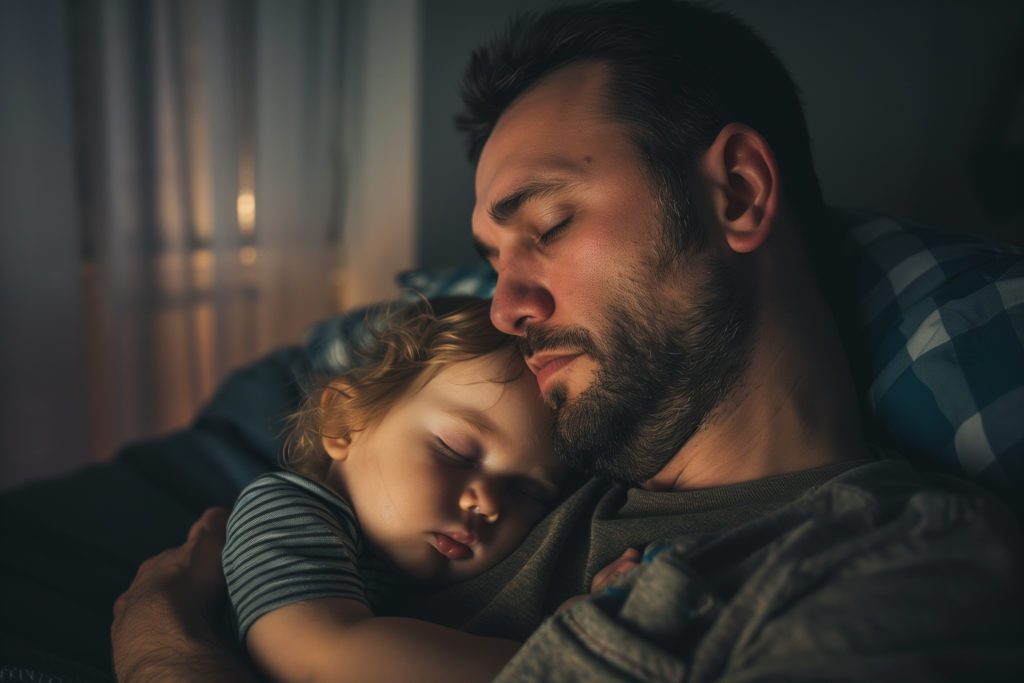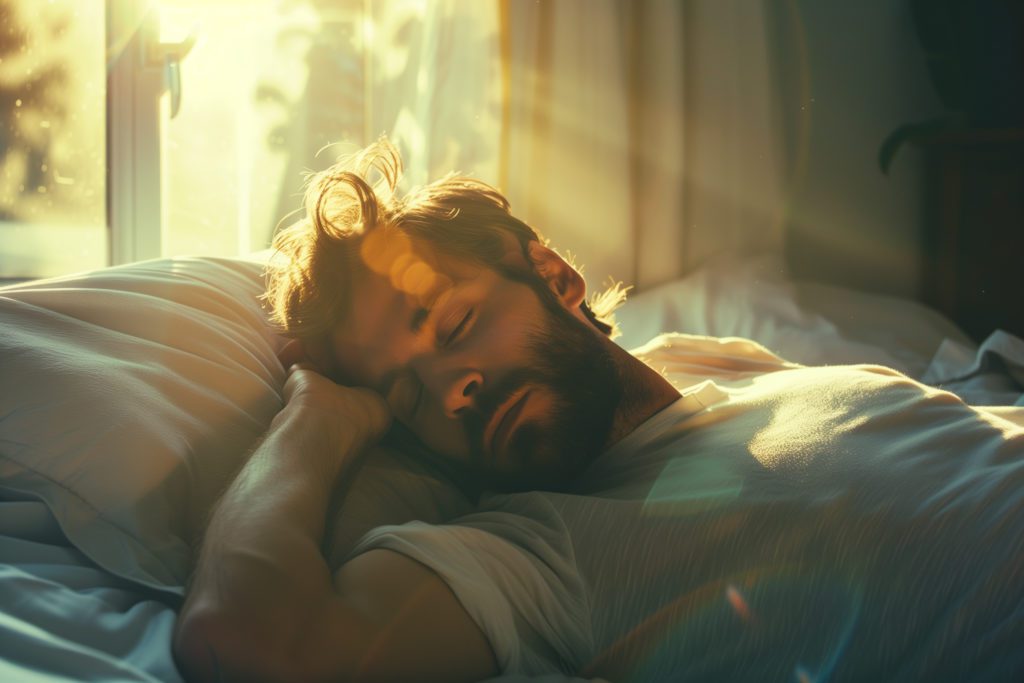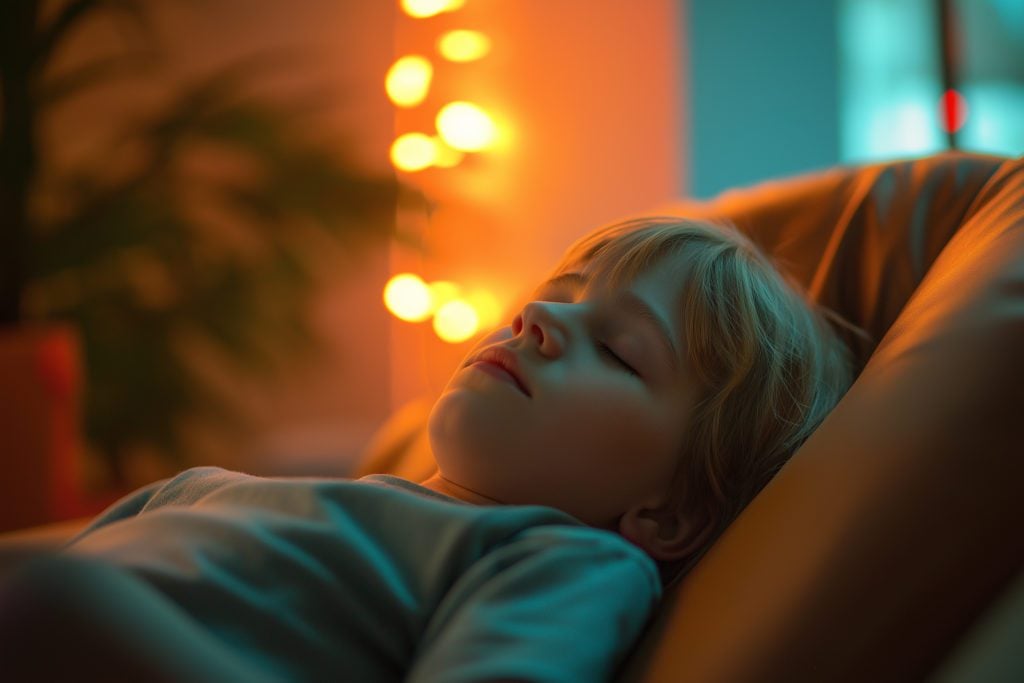
The Impact of Alcohol and Substance Use on Parasomnias and Sleep Health
Learn about the link between alcohol and substance use and overall sleep health and parasomnias.

Many people toss and turn at night trying to get a good night’s rest, yet sleep is elusive. If you have trouble drifting off to sleep, you might self-medicate with alcohol or drugs to help you get some shut-eye. But, substance use can cause sleep problems to worsen and can even lead to parasomnias and other sleep disorders.
What Kind of Substances Affect Sleep?
Sleep problems have been associated with many drugs. Some drugs cause insomnia. Others increase sleepiness during the day and interfere with nighttime sleep. Substances that can impact sleep include:
- Alcohol
- Cocaine
- Sedatives
- Marijuana
- Opioids
- Amphetamines
Alcohol and Sleep
Do you wind down with a glass of wine before bed? Alcohol seems to relax you so it seems like it would be the perfect nightcap. Since alcohol is a sedative and depressant, it will temporarily cause you to feel tired, which might help you fall asleep. However, you might want to rethink that wine. Research has found that even one or two alcoholic beverages before bed can significantly disrupt sleep and reduce sleep quality by 9 percent. You might fall asleep if you drink alcohol before bed, but you aren’t getting restorative sleep.
Consuming alcohol three hours before bed suppresses REM sleep. This can cause you to wake up feeling tired instead of refreshed. Using alcohol frequently can lead to a sleep disorder. Alcohol dependence is associated with the development of insomnia. Studies have found that a good majority of people who are dependent on alcohol experience insomnia.
Older adults are especially likely to suffer poor sleep in response to alcohol use. One study found that older men who consume alcohol are more likely to wake several times throughout the night and feel tired upon waking in the morning.
Research has shown that people sleep better when they stop drinking alcohol. Just one month of abstinence leads to improvements in sleep.
Can Substance Abuse Trigger Parasomnias?
Parasomnias are sleep disorders that involve unusual movements or involuntary behaviors during sleep. Some of the most common parasomnias include:
- REM sleep behavior disorder
- Sleepwalking
- Night terrors
- Confusional arousals
- Sleep paralysis
- Sleep-related eating disorder (SRED)
Parasomnias are very common among people who abuse substances. In research studies, cocaine abuse has been found to be associated with REM sleep behavior disorder. REM sleep behavior disorder can occur during alcohol withdrawal. Sleep-related eating disorders and sexsomnia are both associated with alcohol use.
Substance abuse combined with parasomnias can lead to very serious accidents and injuries.
How Substance Abuse Affects Sleep Health
If you use alcohol or substances on a regular basis, it’s common to have sleep difficulties. Substance abuse can lead to:
- Trouble falling or staying asleep
- Fewer hours of sleep a night
- Excessive daytime sleepiness
- Less restorative sleep
- Fragmented sleep
- Altered circadian rhythms
- Frequent napping during the day
If you aren’t getting enough sleep at night due to alcohol or other substance abuse, you might get into the habit of taking stimulants, such as caffeine, during the day to stay awake. This can interrupt your sleep even more.
Moderate alcohol drinkers are at an increased risk of obstructive sleep apnea, a serious sleep disorder in which a person stops breathing repeatedly throughout the night. Alcohol use slows breathing, increases snoring, and relaxes the muscles in the throat. This raises the risk of sleep apnea.
How To Sleep Better so You Don’t Have To Rely on Alcohol or Drugs as a Sleep Aid
If you find it challenging to get enough sleep at night, you may be tempted to turn to alcohol or drugs to get some shut-eye. But, as pointed out earlier, that can lead to a variety of sleep issues and possibly parasomnias. You’ll be glad to know that there are many things that you can do to improve your sleep that don’t involve drugs or alcohol. Try the following things to help you sleep better.
Practice Meditation
Try a sleep meditation to help you wind down. Meditation can help your mind let go of the day’s worries. Teaching the body how to relax before bed can help promote sleep. Meditation lowers the heart rate and slows breathing — both of which can help you feel calm.
Create a Calming Bedtime Routine
A calming bedtime routine will help you fall asleep more easily. A bedtime routine that you follow every night helps your mind and body wind down. Bedtime routines have been found to help us fall asleep faster. Your bedtime routine should begin an hour before bed and can include things like listening to relaxing sounds, journaling, or taking a warm bath.
Reduce Caffeine Use
If you have trouble sleeping at night, you might feel tempted to hit the local Starbucks late afternoon for a pick-me-up. While caffeine can reduce feelings of sleepiness during the day and promote wakefulness, it can seriously interfere with sleep. Caffeine can reduce the number of hours that you sleep, and make it harder to fall asleep. Avoid consuming caffeine in the form of coffee, energy drinks, or cola eight hours before bedtime.
Keep Your Room Cool and Dark
Exposure to light when you sleep can interfere with your circadian rhythm. So, make sure your blinds or curtains block light from outside street lamps, the moon, and other houses. Cooler temperatures promote the release of melatonin, the hormone that regulates sleep. Therefore, keep your bedroom on the cooler side. The optimal sleeping temperature for adults is between 60 and 67° F.
What To Do if Substance Abuse Is Interrupting With Your Sleep
If you are finding that alcohol use is interfering with your sleep, there are steps you can take to deal with the problem. According to sleep experts, you should not abruptly stop drinking. This can lead to worse sleep problems, including insomnia. Instead, slowly reduce your alcohol consumption.
Make sure you have your final drink no more than four hours before bed. If you are used to drinking a glass of wine or having a beer before bed, replace these drinks with non-alcoholic versions.
When to Get Help
If you abuse drugs, have difficulty reducing your alcohol use, or feel that you can’t sleep without using, then you should consult with a substance abuse treatment professional for help.
FAQ
Can alcohol consumption lead to sleepwalking?
Yes, alcohol can trigger sleepwalking episodes, especially when consumed in large amounts. Alcohol disrupts the sleep cycle, leading to more frequent awakenings and increasing the likelihood of parasomnias like sleepwalking.
Are there specific sleep disorders associated with opioid use?
Yes, opioid use is linked to various sleep disorders, including sleep-related breathing disorders and parasomnias. Opioids can suppress REM sleep and alter sleep architecture, leading to non-restorative sleep and increased daytime sleepiness.
How does alcohol withdrawal impact sleep?
During alcohol withdrawal, individuals often experience significant sleep disturbances, including insomnia and vivid dreams. These disruptions are due to the brain readjusting to the absence of alcohol, which previously suppressed certain sleep stages.
Does caffeine worsen alcohol-related sleep disturbances?
Yes, caffeine can exacerbate sleep disturbances caused by alcohol. While alcohol initially induces drowsiness, it disrupts sleep later in the night. If caffeine is consumed alongside alcohol, it can further delay sleep onset and contribute to more fragmented rest.
Can nicotine contribute to parasomnias?
Yes, nicotine is a stimulant that can disrupt sleep by reducing total sleep time and increasing nighttime awakenings. It has also been linked to sleep disturbances like nightmares and REM sleep behavior disorder, especially when used in high doses
How long does it take for sleep to normalize after quitting alcohol or drugs?
It varies, but most people experience sleep disruptions for several weeks after quitting substances. While some improvements occur within a few days, full sleep cycle normalization can take months, depending on the severity of prior use.

Written by
Emily Mendez
Emily Mendez is a former therapist and mental health author. She is one of the leading voices in mental health. Emily's writing has appeared in eCounseling, SonderMind, and more. Emily is frequently interviewed by Healthline, Fatherly, INSIDER, Family Circle, and other national media for her advice and expert opinion on the latest mental health topics.
Download Pillow
Get help
Press & News
Legal
Connect
X (Twitter)
Company
Copyright © Neybox Digital Ltd.



